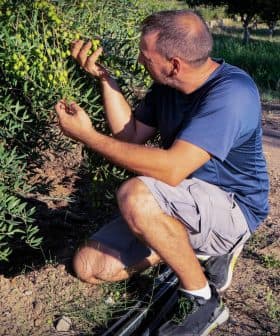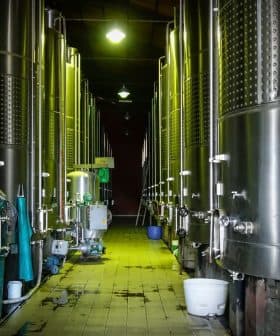Farms Facing Natural Constraints Play Key Role in European Agriculture
Farms facing natural challenges are less profitable than conventional ones but play a critical role in biodiversity and landscape preservation.
 Cinque Terre, Italy
Cinque Terre, Italy A significant portion of the Common Agricultural Policy (CAP) funds in the European Union will go to farmers who operate in disadvantaged areas in the next few years, with €18.7 billion directed to those farmers in the current CAP from 2023 to 2027. Farms facing natural constraints cover 47 million hectares of farmland and, despite lower yields, are less harmful to the environment and crucial for maintaining biodiversity, making CAP income support crucial to prevent further deterioration of ecological status in those areas.
A significant portion of the Common Agricultural Policy (CAP) funds in the European Union will go to farmers who operate in disadvantaged areas in the next few years.
Among those are all farms facing natural constraints such as steep slopes, arid regions or areas subjected to weather extremes. Olive and vine growers in many regions qualify for these funds.
According to a report published by the E.U.’s General Directorate for Agriculture, €18.7 billion will be directed to those farmers in the current CAP, which runs from 2023 to 2027.
See Also:Promoting Biodiversity, Improving Soil Health Are Key to Tackling the Global Water CrisisThe European Union estimates farms facing natural constraints cover 47 million hectares of farmland.
The money from the CAP represents 17 percent of all funding dedicated to rural development and 6 percent of the funds provided for by the national strategic plans which enact the CAP in each country.
For the first time on record in the European Union, experts compared the performance of farms facing natural constraints against conventional ones.
They found that even when supported by CAP funds, the farms facing natural constraints deliver 20.4 percent less income to farmers in mountainous areas and 26.5 percent less in other extreme regions.
While farms facing natural constraints deliver lower yields, their activity proved less harmful to the environment on average, with a more significant portion of their land benefiting biodiversity.
The significant presence of grasslands and fallow land on farms facing natural constraints reduced the risk of erosion and supported soil health while also contributing to the maintenance of the landscape.
The widespread use of leguminous crops to improve soil fertility reduces the need for synthetic fertilizers.
The data also shows that farms facing natural constraints use less fertilizer and pesticides. In mountainous areas, the volume of such products is reduced by 55 percent compared to conventional farms.
When only permanent crops are considered, crop-protection products are used 56 percent less compared to conventional farms.
Extreme agricultural areas, such as the many steep slopes where olive farmers work across the Mediterranean, are considered by experts highly sensitive to the ongoing climate crisis.
“For most of the Mediterranean areas, the Intergovernmental Panel on Climate Change foresees significant damages from climate change which in the next decades could become disastrous,” Primo Proietti, a professor of agricultural and environmental sciences at the University of Perugia, Italy, told Olive Oil Times.
“Agricultural production could undergo substantial losses, and product quality could also lower significantly because of temperature extremes, unpredictable rainfall and floods and, on top of that, drought,” Proietti explained.
“Climate change will also tend to boost pathogens, pests and weeds destined to impact the volume and the quality of production,” he added.
According to Brussels, the abandonment of biodiversity-rich farmland on farms facing natural constraints and the end of agricultural activities might easily lead to further deterioration of the ecological status of those areas.
“Allowing farms facing natural constraints to go out of production would likely result in an overall decrease of food production in the E.U. and a consequent intensification in already intensely managed farmland. Therefore, CAP income support is crucial,” the report’s introduction concluded.
Share this article









